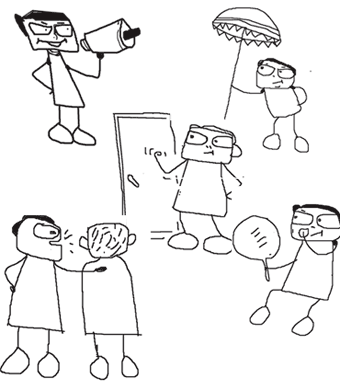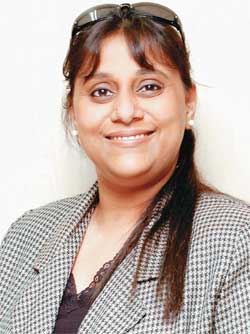
The itinerary below, shows a typical day in the life of a PR person (may differ from professional to professional). A day that is not only full of busy schedules, important appointments but very proactive work. The PR industry is usually associated with glitz and glamour. But behind the sheen of glamour is pure hard work, thinking on your feet constantly, trouble shooting and having the responsibility of building an image.
Whether a company thinks of launching a product, or a new movie is up for release or a foreign dignitary visits India on a strategic mission, it is the PR machinery that kicks into action first.
Think of President Barack Obama and his spectacular campaign and eventual win to the White House in 2008. Apart from his charm, candour and his promises of change, Obama had a 24/7 PR machinery behind him. A team that made sure that every move and every speech reached across the globe. They even got down to emailing people across the United States to ask for donations for his campaigns in the most informal, chatty manner.
Thanks to the media explosion and globalisation in the last decade, PR is not only responsible for the image of a brand or a company but also has begun playing a role in strategic communication at board room levels. Though in India, public relations is mostly to do with media relations, as more and more Indian companies are striving towards a global presence, the need for strategic communications grows daily.
In India, the field of public relations has been growing steadily in the last decade as more and more smaller and independent PR outfits in the country are being taken up by international PR firms.

 Simply put, the role of a PR profesional is to make sure that the product, brand or service he represents gets adequate exposure in public through various media such as print and television (news media) and now digital media. The product must be highly visible, the target audience knows about it and understands it and there is a certain credibility to the product.
Simply put, the role of a PR profesional is to make sure that the product, brand or service he represents gets adequate exposure in public through various media such as print and television (news media) and now digital media. The product must be highly visible, the target audience knows about it and understands it and there is a certain credibility to the product.
A PR person has to constantly predict, maintain and understand the attitude of the consumers and work accordingly. A tiring task, according to Rashmi Singh, a PR professional from Mumbai, is convincing journalists to feature products or clients. "Journos tend to brush us off. We must keep at it and convince them about the product," she says.
At all times, communication must be clear and credible between the public and the client. The target audience can be consumers, general public or government bodies. In a nutshell, PR makes sure that the clients are always visible in
media and among consumers.
 You must have a Bachelor's degree in any discipline, and pursue a diploma or a postgraduate diploma in public relations.
You must have a Bachelor's degree in any discipline, and pursue a diploma or a postgraduate diploma in public relations.
You can also do short-term certificate courses. Usually institutes that offer courses in mass communication or advertising, also offer Public Relations courses. You may have to take an entrance test.
A typical Public Relations course teaches basic principles of the profession, techniques to negotiate, management skills, writing skills, planning campaigns and strategising.
Other skills include teaching survey methods, marketing techniques and consumer research. You can specialise in corporate communication, event and image management.
A bright future for PR
Industry leaders are recognising the importance of PR and professionals in the field are playing the role of strategic
thinkers rather than being just another cog in the corporate wheel. PR has indeed come a long way.

Corporate communications
All major organisations today have a corporate communications department that takes care of brand building, image management, media relations.
Crisis communication
One of the most challenging aspects. Restoring the image of a client or industry and re-instilling faith in the media, public and other regulatory agencies is not easy. Consumer product recalls are one of the biggest challenges. A case in point being the Cadbury Dairy Milk controversy when worms were discovered in the product or the very recent Toyota company's recalling of 3.8 million vehicles.
Brand management
You specialise in a brand, identify some marketing methods by which you can promote the brand and make it more appealing to your target audience. Fast Moving Consumer Goods (FMCG) companies usually employ brand consultants and managers.
Lobbying
A relatively nascent field, lobbying is about putting pressure in the right places and bringing about the passing of laws that favour the organisation or the government represented by the lobbyist. Typical fields are politics, education, environment and public policies.
Image management
When a prominent personality needs a makeover or wants to do some self-promotion, they sign up with an image management company. Right from image consultations to managing talent (actors, models, anchors, artistes and sports personalities) to even training in the form of grooming is done under the same roof.
Event management
These agencies usually organise festivals and events after identifying the consumer for their brand and what their needs are. Right from looking into the conceptualisation to the logistics and the all kinds of technicalities, event management is a kind of promotion in itself.
PR wings of ad agencies
Several advertising agencies in India have launched PR arms that function autonomously and deal with clients externally. These wings offer complete PR solutions such as corporate counselling, research, financial relations, editorial and creative functions, crisis communication briefings, public affairs and media relations.

Roma Pereira-Talwar, former Director-National Lifestyle and Healthcare Practices at R&PM Edelman, and communication consultant, share some tips.
How has the PR industry evolved?
When I began, PR was on a much smaller scale. As a Public Relations Officer your job was to do all the dirty work like taking people out to lunch, booking tickets for them or planning their schedule. Today, PR commands a seat right at the war table as a discipline that is necessary when companies are formulating their business strategy.
Your tips for young professionals...
Read the newspaper thoroughly, get online and read up on everything under the sun. You must be clued-in to what's
going on. On-the-job, you may need to brief political leaders, CEOs, and media personalities. So inside dope on multiple industries, competition, future brands and the specific industry you specialise in is a must.
 Get familiar with social media platforms like Facebook, Twitter and Blogger. You need to network, too. Attend industry forums, seminars, register with a PR association. When I started out I joined the Ad Club Bombay. I attended programmes and met important people from my industry.
Get familiar with social media platforms like Facebook, Twitter and Blogger. You need to network, too. Attend industry forums, seminars, register with a PR association. When I started out I joined the Ad Club Bombay. I attended programmes and met important people from my industry.
The perks and drawbacks?
The fact that you get to work on multiple industries is a huge incentive. At one point of time I would breakfast with Kelloggs, snack on Cadbury's, lunch with Heines and party with Wills Lifestyle India Fashion Week.
You can meet different kinds of people through your work. There is never a dull moment. The field is definitely glamorous but there is a lot of hard work behind the allure of it.
When you are in PR you have to be careful about just about anyone coming to you to represent them. You have your reputation to watch out for. It is tough to say "No". But you have to safeguard your integrity, learn to say "No" to anything unethical.
Be upfront. Don't let go of your ethics. For instance, if your company's product is not up to standards, an ethical PR outfit will always advise product recall. The idea is to perceive cognisance and take action. The other drawback of course is the long hours you have to keep at work.